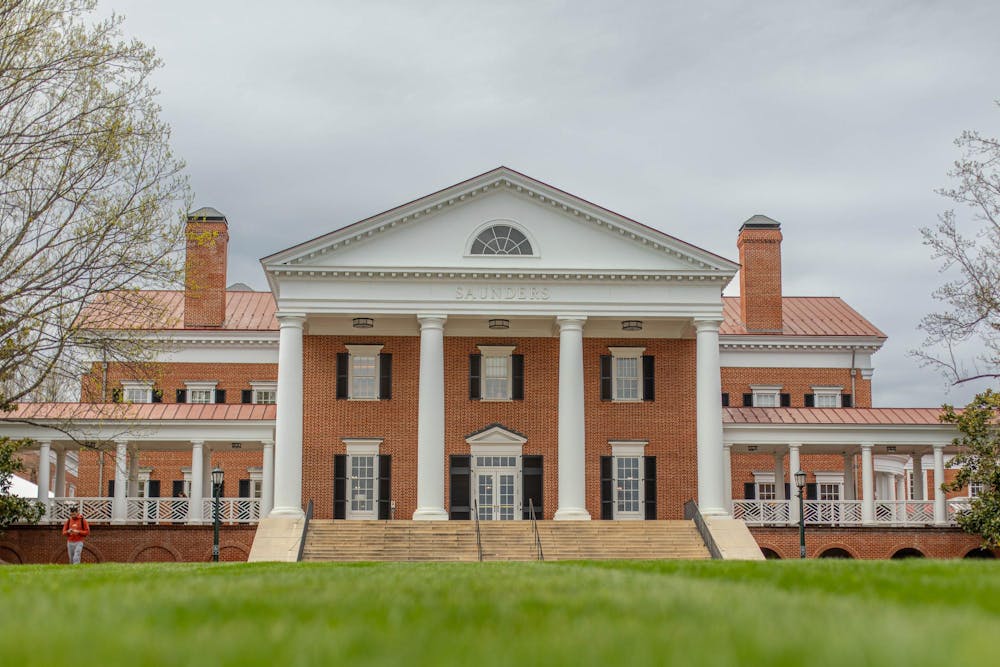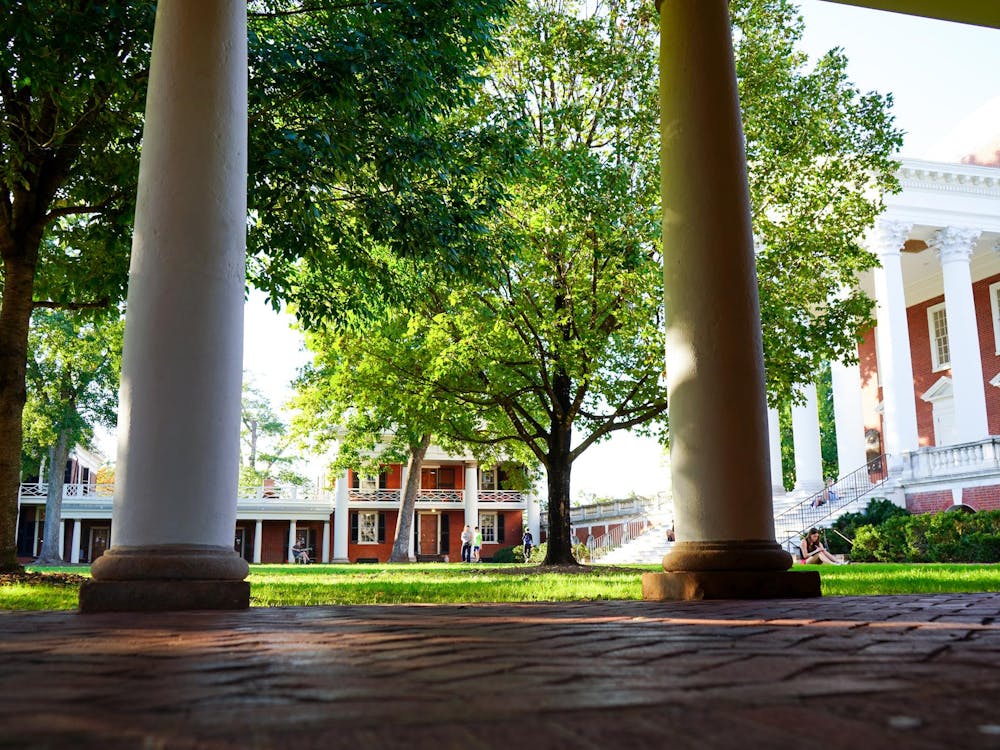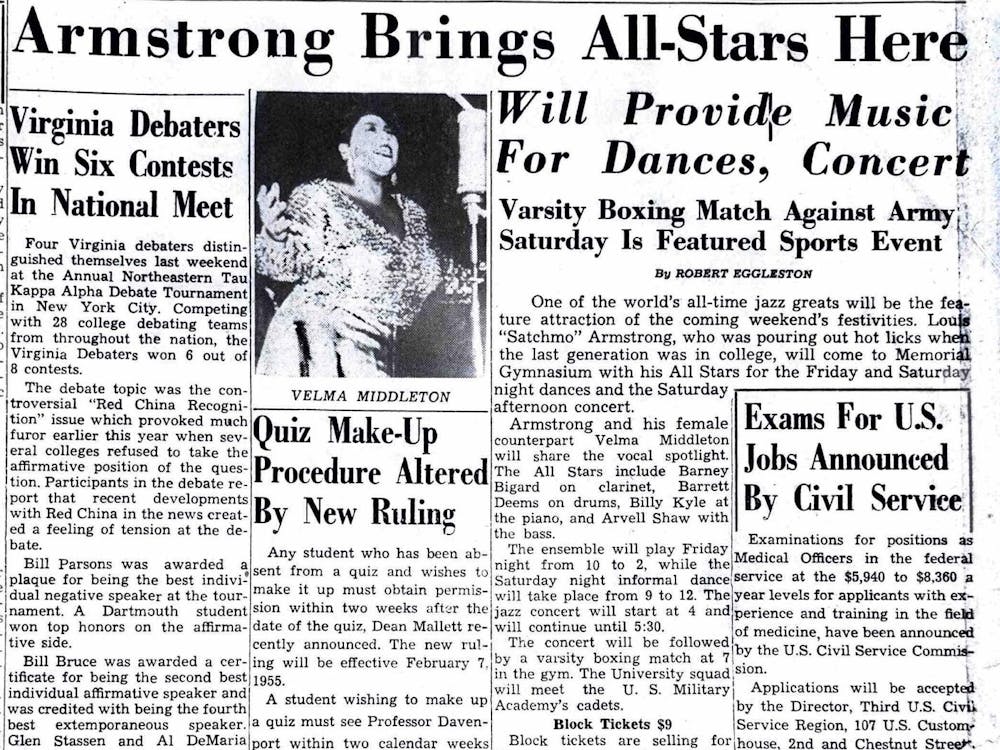At an emergency meeting held July 11 the University’s Faculty Senate overwhelmingly passed a resolution for a vote of no-confidence in the University’s Board of Visitors. The vote comes amidst a tumultuous time for the University following former President Jim Ryan’s resignation June 27. The vote serves to show the majority of the University faculty’s disapproval with the recent actions of the Board and their hopes to have a say in the selection of a new University president.
46 senators voted in favor of the resolution, six voted against and eight abstained from voting. In the resolution, the Senate expressed disappointment in the Board due to its decision not to consult the Faculty Senate about Ryan’s resignation and failing to protect the President from external influence. The resolution also calls on the Board to provide the Senate with the decisions and series of events that ultimately led to Ryan’s resignation.
“In order to restore its confidence in the Board of Visitors, the Senate calls for the Board to provide the Senate with a full accounting of the specific series of events, and actions taken by the Board that resulted in the resignation of President Jim Ryan,” the resolution states.
A vote of no-confidence typically indicates an organization's disapproval with its leadership or serves to exhibit that the views of an organization do not align with those of its leader. In many cases, a no-confidence vote may soon be followed by steps taken to remove the leadership that may be acting against the wishes of a community.
In this case, the Faculty Senate does not have the power to remove members from the Board of Visitors. This power is reserved for the governor and is rarely exercised. Although Gov. Glenn Youngkin has not signaled any intention to remove any Board members over this issue, removal may be more carefully considered if a Democratic governor were to enter office following Virginia’s gubernatorial election in November.
This is not the first time the Faculty Senate has passed a vote of no-confidence in the Board. The Faculty Senate passed a similar measure in 2012 expressing disapproval of then University President Teresa Sullivan’s resignation under pressure from the Board. Sullivan was eventually reinstated by the Board less than a month later following the resolution and backlash from the University community.
The Faculty Senate also passed a resolution on the selection of an interim president at the Friday meeting. In it, the Faculty Senate called on the Board to acknowledge all members of the University community in the search for an interim president and to choose an individual with a history of outstanding scholarship, teaching and research.
“[The Faculty Senate] is heartened by the expressed intention of the University’s Rector to work with Faculty Senate Executive Committee, and in collaboration with the Acting President of the University, to conduct a deliberate, transparent, and collaborative process of selecting an interim president,” the resolution states.
In accordance with the Faculty Senate’s request for this to be a collaborative process, the University has given members of the community an opportunity to submit nominations for a new interim president. The form states that it will seek input from the entire University community during its search for the University’s 10th president. The nomination form will remain open for submissions until July 25.
The Faculty Senate is composed of faculty members who represent all of the University’s schools. Depending on the school, senators are either elected by the faculty of their school or department or appointed by their school’s dean. According to the Faculty Senate Handbook, the Faculty Senate largely concerns itself with issues regarding degree programs, and also discusses issues which concern some or all of the faculty.
The Faculty Senate also has a non-voting member that serves on the Board to represent the interests of University faculty, appointed by the Board’s executive committee. That member is currently Engineering Prof. James Lambert, but was Education Prof. Michael Kenendy at the time of Ryan’s resignation. Although the member cannot vote on Board resolutions, they can engage in discussion and voice concerns that the greater Senate may have with any actions the Board might take.
The Faculty Senate vote is not the only action that expressed the discontent of faculty members with the Board's recent actions. A statement signed by over 400 University faculty conveyed similar sentiments and also called on the Board to work with faculty to carefully choose a new interim president in a process that should demonstrate transparency, goodwill and a fundamental commitment to the University’s independence.
“When the Board does launch a search for a new president, the process must be open, transparent and collaborative,” the statement said. “As with previous presidential searches, faculty, students, alumni and staff must be well represented on the committee if the outcome is to be legitimate.”
As Ryan stated in a letter sent to the University community that he had already planned the 2025-2026 academic year to be his final year as president, it is unlikely that the Faculty Senate’s actions will result in his reinstatement as occurred in the case of Sullivan. Despite this, the Faculty Senate may continue to wield influence over the University community by placing pressure on legislative bodies such as the Board through its non-voting representative to collaborate with the Faculty Senate in the search for an interim President.
Jennifer Wagner Davis, executive vice president and chief operating officer, began serving as acting University president Friday following Ryan’s departure. In a statement sent to the University community Monday, Davis said her focus is to ensure stability and support for the community. She also said information about the process for appointing an interim president and beginning the search for the University’s 10th president would be forthcoming.
“I want to thank each of you for helping to strengthen U.Va.’s excellence as the world class academic and medical institution that we all hold so dear,” Davis said. “I am humbled to serve in this position and am committed to offering leadership that ensures continuity, transparency and trust.”







